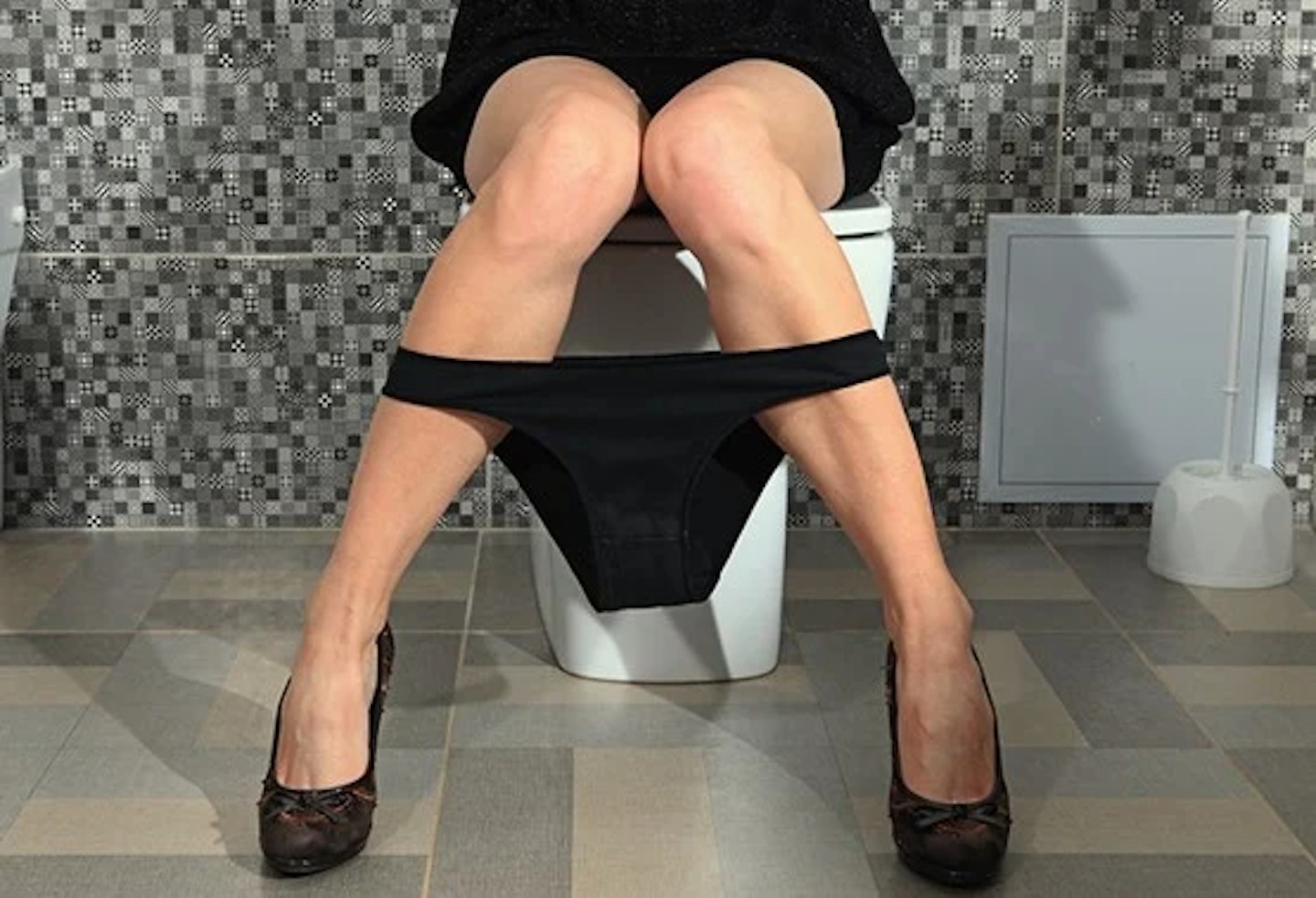At twenty-nine weeks pregnant, your baby’s getting wriggly and you’ll be a frequent visitor to the loo (glamorous!). Find out more about what your baby and body is doing and the common symptoms to look out for at 29 weeks pregnant.
How big is my baby at 29 weeks?

This week, your baby’s getting pretty close to her birth length, at between 15 and a half and 16 inches long. She also weighs between two and a half to three pounds now, and this week marks a change in her weight: over the next 12 weeks, she’ll more than double or even triple her current weight. In keeping with the fruit and vegetable comparisons, your baby’s now the size of a butternut squash.

What’s my baby doing at 29 weeks?
Now that your baby is much bigger, you’ll definitely start noticing more vigorous and regular kicks and wriggles. She may even kick when she’s asleep – just like you move around during the night trying to get comfy.
Your baby will be responding to all sorts of stimuli, from the food you eat to the sounds and light she can detect from the womb. There’s no set number of times that your baby should be moving – each child is different - but you should start monitoring kicks twice a day, in the morning and at night. It’s easiest to do this lying or sitting down as your baby is more likely to perk up once you’re resting. Count to ten and monitor all her movements.
If you notice that your baby hasn’t moved around for longer than you feel is normal, try to get her moving by drinking an icy cold glass of water or eating a snack. If that doesn’t work, call your midwife for advice.
When it comes to your baby’s body, her head is growing bigger to make room for her developing brain, and her muscles and lungs are maturing.
Common symptoms to look out for:
 1 of 8
1 of 8Frequent urination
1. Have you found yourself constantly needing the loo? As your uterus expands and grows, you will have an increased urge to go to the toilet. Definitely don't reduce your water intake as drinking water is vital and it will help ease many of the symptoms pregnancy brings. Staying hydrated also prevents you going into labour early. So drink up (sorry!).
 2 of 8
2 of 82) UTI's
2. More toilet traumas I am afraid. Now you’re in your third trimester, you’re more susceptible to urinary tract infections, so if it burns when you go to the loo, talk to your doctor or midwife to get advice.
 3 of 8
3 of 83) Varicose veins
3. Another lovely pregnancy symptom, varicose veins affect nearly 40% of expectant mums. Some women find them painful, while others have no feelings of discomfort, and if your mum had them, chances are you’ll have them too. To try to avoid and minimise them, try special maternity support hosiery, and keep moving to keep your circulation going.
 4 of 8
4 of 85) Trouble sleeping
4. We know this has been going on for weeks now but sadly we aren't here to tell you that it's going to stop anytime soon. Make sure to not drink much caffeine, if any and try light exercise such as walking or yoga to tire you out carefully.
 5 of 8
5 of 86) Migraines or headaches
5. Headaches and migraines which have been a frequent symptom could be more likely if you're dehydrated or sleep deprived. Headaches may also be a result of low blood sugar, so eat regular slow meals to keep it up.
 6 of 8
6 of 87) Leaking breasts
6. You haven’t even given birth yet, but your breasts may already be leaking pre-milk known as colostrum. It’s time to start shopping for breast pads (oh, the glamour!).
 7 of 8
7 of 88) Aching back, hips or legs
7. Being achey and sore is expected when you're carrying extra weight around. Your baby is also putting pressure on near enough every part of your body and causing general aches and pains. Your joints and ligaments are softening in preparation for labour which means they are less equipped to deal with this extra weight and work.
 8 of 8
8 of 89) Heartburn
8. Hello darkness, my old friend. If this unpleasant symptom is keeping you up at night, stay away from energisers like coffee or chocolate before going to sleep, and try to avoid eating too much too close to your bedtime.
What is my body doing at 29 weeks?
You’ve probably been visiting the loo more frequently ever since you became pregnant, but as your baby is so big, she’s now putting some serious pressure on your bladder - so those visits to the loo are likely to treble around now!
As tempting as it may sound to go cold turkey on the fluid front, it’s crucial that you keep hydrated – no matter how many times loo visits interrupt your sleep – because in extreme cases, dehydration can lead to premature labour.
You may also notice that you leak small amounts of urine when you laugh, cough or sneeze, which is known as stress incontinence. It’s due to the weight of your baby pushing down on your pelvic floor muscles, which controls the flow of urine out of your body. Keep your pelvic floor toned by doing daily exercises.
What to do this week:
-
Drive safely - there are two of you in the car now! Having a big bump is no excuse to stop belting up in the car. Wear the lap portion so that it fits across your thighs and hips, and under your bump – not across the middle of it. The diagonal strap of the belt should sit over your collarbone, then go down between your breasts and be fastened so it sits above your bump, not on it. If you’re going on a long journey, make sure you take regular breaks to prevent your legs and ankles getting swollen (just like you would if you were on a plane). If you’ve got a backache, a cushion wedged in the small of your back can help ease it.
-
Eat well: You should also make sure you’re eating enough of the good stuff to keep up with your baby’s growing nutritional demands: make sure your diet includes plenty of folic acid, iron, vitamin C, calcium and protein.
According to Emiliana Hall, the founder of The Mindful Birth Group®: "As you progress into your 29th week of pregnancy, the reality of your impending arrival becomes more tangible. This is an exciting yet challenging phase, with both physical and emotional changes taking centre stage. Here’s what you need to know and what you can expect at 29 weeks pregnant, says Emiliana
Baby's Development at 29 Weeks
By 29 weeks, your baby weighs about 1.1 kilograms (2.5 pounds) and measures roughly 39 centimetres (15.2 inches) from head to heel. Significant developmental milestones during this week include:
-
Muscle and Fat Growth: Your baby continues to gain weight, accumulating fat and building muscle. This helps regulate their body temperature after birth.
-
Skeleton Hardening: The baby's bones are continuing to harden and strengthen, although the skull remains soft and flexible to facilitate birth.
-
Brain Development: Rapid brain development is ongoing, with billions of neurons forming. This growth supports future learning and cognitive abilities.
-
Movements and Hiccups: You might feel more pronounced movements and even rhythmic hiccups as your baby practices breathing and swallowing, Emiliana says.
Common Symptoms at 29 Weeks
As your pregnancy advances, you may experience a range of symptoms. Here are some common ones:
-
Fatigue: Your body is working hard to support your growing baby, which can lead to increased tiredness. Rest whenever you can and listen to your body.
-
Heartburn and Indigestion: These symptoms may persist due to hormonal changes and the growing uterus pressing on your stomach. Eating smaller meals and avoiding trigger foods can help.
-
Swelling: Oedema, or swelling, in your feet, ankles, and hands can become more noticeable. Elevate your feet, avoid prolonged standing, and wear comfortable shoes to alleviate discomfort.
-
Leg Cramps: These are common during pregnancy and can often strike at night. Stretching your calf muscles before bed and staying hydrated can help reduce cramps.
-
Shortness of Breath: As your uterus expands, it can press against your diaphragm, making breathing more challenging. Practising good posture and gentle prenatal exercises can ease this symptom, Emiliana says.
Advice for 29 Weeks Pregnant
-
Prenatal Appointments: Continue attending regular prenatal check-ups. Your healthcare provider will monitor your baby’s growth and your overall health, checking for any signs of complications.
-
Glucose Screening: If you haven’t already, you might undergo a glucose tolerance test to screen for gestational diabetes. This is typically done between 24 and 28 weeks but can be performed slightly later if needed.
-
Kick Counts: Pay attention to your baby's movements. Tracking these can help you notice any significant changes. Your midwife can provide guidelines on what to expect and when to seek advice.
-
Nutrition and Hydration: Maintain a balanced diet with plenty of fruits, vegetables, lean proteins, and whole grains. Drink plenty of water to stay hydrated and support your overall health.
-
Exercise: Engage in safe, moderate exercise such as walking, swimming, or prenatal yoga. Exercise can boost your energy levels, improve mood, and help with sleep, Emiliana continues.
Emotional Well-being
The third trimester can be an emotional time. Here are some ways to support your mental and emotional health:
-
Stay Connected: Share your thoughts and feelings with your partner, friends, or family. Joining a support group or antenatal class can also provide comfort and companionship.
-
Self-care: Prioritise activities that help you relax and recharge. This could be reading, taking a bath, practising mindfulness, or spending time on hobbies.
-
Seek Support: If you’re feeling overwhelmed, anxious, or down, don’t hesitate to reach out for support. Your midwife or GP can provide resources and referrals to counselling if needed, Emiliana says.
Preparing for Baby
With your due date approaching, it's a good time to prepare for your baby's arrival:
-
Nursery Preparation: Continue setting up the nursery, ensuring you have essentials like a crib, changing table, and baby clothes ready.
-
Hospital Bag: Start packing your hospital bag with necessary items such as comfortable clothing, toiletries, baby outfits, and important documents.
-
Birth Plan: Finalise your birth plan and preferences and discuss it with your healthcare provider. Include preferences for birth place, pain relief, birthing positions, and who you want to be present during labour.
-
Childcare Classes: Consider attending antenatal classes or workshops. These can provide valuable information on childbirth, infant feeding, and newborn care, Emiliana says.
What to Discuss with Your Midwife or Doctor
-
Symptoms and Concerns: Bring up any symptoms or concerns you have, no matter how minor they may seem. Your healthcare provider is there to support you and ensure your pregnancy is progressing smoothly.
-
Birth Preferences: Discuss your birth plan and any preferences you have regarding labour and birth.
-
Postnatal Care: Ask about what to expect after birth, including infant feeding support, postpartum recovery, and newborn care." says Emiliana.
Meet the expert:

Emiliana Hall is the founder of The Mindful Birth Group® which provides award-winning Mindful Natal® courses and the PregnaHub® app, as well as an accredited Teacher Training program and Midwife CPD courses. She is also an experienced Birth and Postnatal Doula. Emiliana's vision is to make vital antenatal and postnatal education and ongoing support accessible to everyone in the UK.
Deborah Cicurel is a writer for Mother and baby who has specialised in content about pregnancy.
